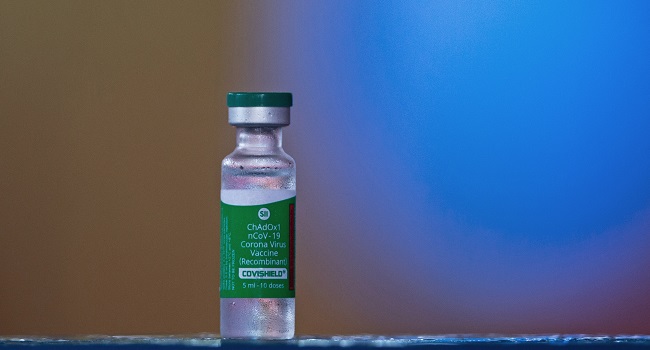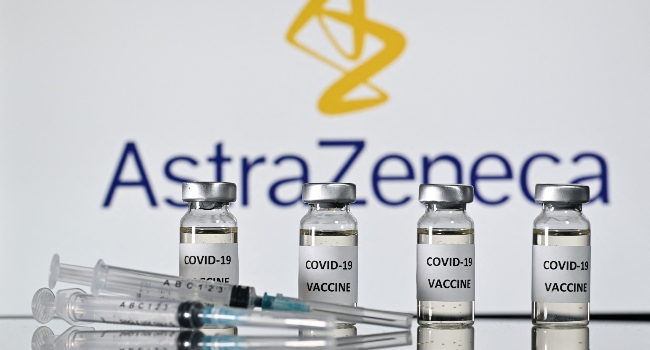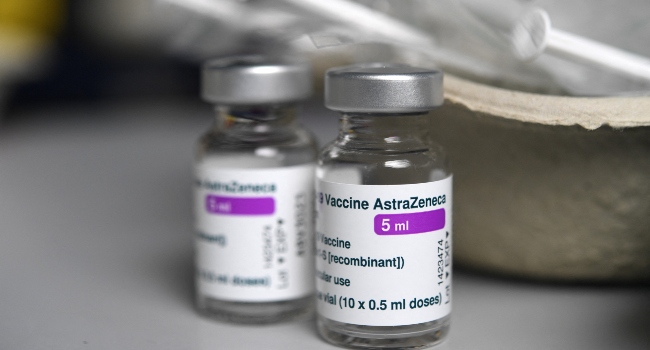The National Agency for Food and Drug Administration and Control (NAFDAC) has approved the use of the Oxford/AstraZeneca COVID-19 vaccine in Nigeria.
The Director-General of NAFDAC, Dr. Mojisola Adeyeye made the announcement during a live briefing on Thursday.
She said that the vaccine can be stored at 2 to 8-degree centigrade.
According to the NAFDAC Boss, there are three additional vaccines undergoing evaluation, but the evaluation on Astrazeneca shows that the vaccine is effective against the UK variant of the virus which has been reported in Nigeria.
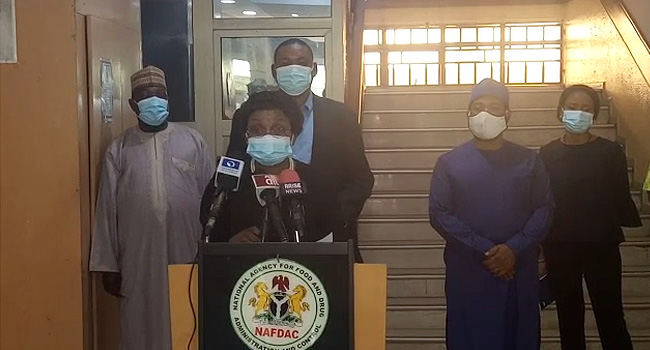
Dr Adeyeye disclosed that the South African variant has not been reported in Nigeria, adding that the agency has over 30 herbal medicine undergoing review for listing.
The vaccine was recently approved by the W.H.O for emergency use, in a press briefing, NAFDAC says it got the dossier of the vaccine a week ago, and the NAFDAC safety committee went to work immediately to evaluate its safety and efficacy for Nigerians.
The Oxford/AstraZeneca vaccine, also known as ChAdOx1 nCoV-19, or AZD1222, is a viral vector vaccine. Scientists used an adenovirus, originally derived from chimpanzees, and modified it with the aim of training the immune system to mount a strong response against SARS-CoV-2 (the virus that causes COVID-19).
It is only the second COVID-19 jab to have received WHO authorisation, after the Pfizer-BioNTech vaccine.

MICHAEL DANTAS / AFP
“The WHO listed two versions of the AstraZeneca-Oxford Covid-19 vaccine for emergency use, giving the green light for these vaccines to be rolled out globally through Covax,” the UN health agency said in a statement.
The two versions given the seal of approval are being produced by the Serum Institute of India (SII), and by SKBio in South Korea.
Separate reviews were needed for each production process, although the vaccine is the same.
“Countries with no access to vaccines to date will finally be able to start vaccinating their health workers and populations at risk, contributing to the Covax facility’s goal of equitable vaccine distribution,” said WHO Assistant Director-General Mariangela Simao.
“But we must keep up the pressure to meet the needs of priority populations everywhere and facilitate global access. To do that, we need two things — a scale-up of manufacturing capacity, and developers’ early submission of their vaccines for WHO review.”
– 337.2 million doses –
The organisation’s emergency use listing procedure assesses the quality, safety and efficacy of Covid-19 vaccines, and is a prerequisite for vaccines in the WHO co-led Covax facility.
AstraZeneca vaccines from India and South Korea made up almost all of the initial 337.2 million doses lined up for Covax’s first wave of distribution, which is set to get moving in late February.
Some 145 participating economies are set to receive enough doses to immunise 3.3 percent of their collective population by mid-2021.
The first wave includes 240 million SII AstraZeneca doses; 96 million South Korean AstraZeneca doses; and 1.2 million Pfizer doses.
Both vaccines require two injected doses.
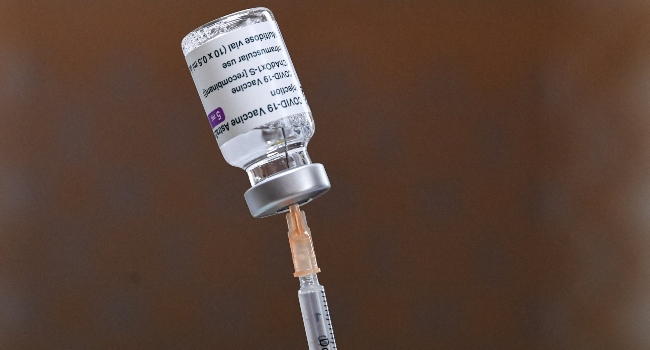
“We now have all the pieces in place for the rapid distribution of vaccines,” WHO director-general Tedros Adhanom Ghebreyesus told a press conference.
Simao added: “There’s no need to panic and no need for countries to go buying in the market, because they’re going to pay more.”
– OK for over-65s –
Last week in a separate process, the WHO’s Strategic Advisory Group of Experts on Immunization issued its interim usage recommendations for the AstraZeneca vaccine.
Soothing fears about the jab, SAGE concluded it could be used for people aged over 65, and also where coronavirus variants of concern are circulating.
SAGE acknowledged the lack of data on the vaccine’s efficacy for over-65s, which has prompted a number of countries to withhold it from by far the most vulnerable age group.
But the experts decided that given its performance with younger adults, “it is likely that the vaccine will be found to be efficacious in older persons. The trial data indicate that the vaccine is safe for this age group.”
They said the vaccine proved more effective when the interval between doses was extended to between eight and 12 weeks.
The number of reported Covid-19 cases globally has dropped for a fifth consecutive week, nearly halving from more than five million in the week of January 4 to 2.6 million in the week starting February 8.

